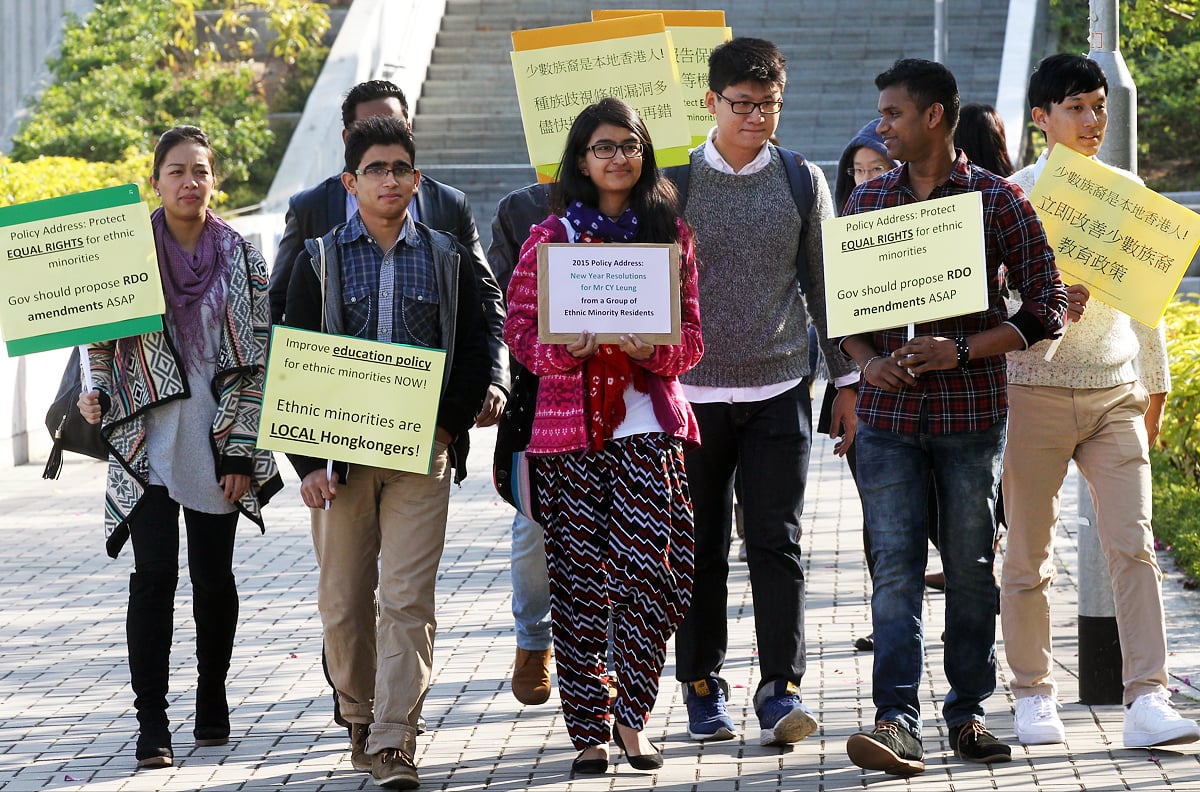Racial inequality exists around the globe. The United States of America face with a myriad of racial discrimination, mainly towards African Americans and immigrants. In this blog, I would be focusing more on the racial discrimination towards ethnic minorities in Hong Kong.
Ethnic minorities face a lot of difficulties in their Hong Kong lifestyle. In their daily life, ethnic minorities are faced with discrimination in shops, restaurants etc. Staff refuse service to these individuals, due to their difference in color. This makes life hard for them as they can not find employment, education or other fundamental human rights so easily in Hong Kong society.

According to Society for Community Organization: Hong Kong (2001), “There are 279,600 non-Chinese in Hong Kong which occupy 4.1% of the total population. Among them, 32% have been rejected for employment or interview because of their races or based on some bad excuses while 27% have been rejected when the employers learnt that they were not Chinese or Westerns. Their lack of employment is not due to lack of skills or degrees, it is simply about their nationality and the cultural differences between the Chinese. Discrimination can be shown also within the salary contrasts between ethnic minorities and Chinese. The median monthly income of Hong Kong population is HK$10,000 while the median monthly earning for new immigrants and ethnic minorities is HK$6,000 and HK$3,800 respectively, based on the Coalition for Racial Equality (CORE), Hong Kong Human Rights Commission (July 30 2001).

Foreign domestic helpers (FDHs) are also affected as they are treated as a second class towards Hong Kong citizens. FDHs are categorized into usually Filipinos, Indonesians and Thais. Based of a survey of Asian Migrant Centre and Coalition For Migrants’ Right, 2,500 respondents were conducted in this survey to find out more in depth about their discrimination.
“The result reveals that the FDHs have identified some areas of public life where they are very often unfairly treated or discriminated against. They are markets/groceries (7%), shop/restaurants/commercial establishments (4.5%), and public transportation personnel (3.4%).”
The belief of their discrimination is due to the nature of their job as a domestic helper, and also the fact they are different from local citizens in Hong Kong.
Ethnic minority discrimination is so common in Hong Kong society on a daily basis, we tend to turn a blind eye against them. Is there any organization that can help with this inequality?
Hong Kong Unison.

Hong Kong Unison is a non-governmental organization founded in March 2001 and recognized as a public charitable institution (IR File No. 91/7763) in 2005. We receive no government funding. In the past years, our services have expanded from handling individual cases to advocating policy reforms for ethnic minority residents. (Hong Kong Unison, 2001)
They strive to close the gap between the racial equality towards ethnic minorities in Hong Kong. They provide programs which empower the ethnic minority youth, as well to teach Cantonese to them as Cantonese is not taught as a second language to foreigners residing in Hong Kong.
Will we be able to stop the fight between ethnic minorities in Hong Kong? We may never know, but at least we can try.
References
- Coalition for Racial Equality (CORE), Hong Kong Human Rights Commission. (July 30, 2001) Retrieved from https://www2.ohchr.org/english/bodies/hrc/docs/ngos/HKHRC_ChinaHongKong106.pdf
- Hong Kong Unison. (2001). About Hong Kong Unison. Retrieved from http://www.unison.org.hk/index.php
- Society for Community Organization: Hong Kong (2001). Retrieved from https://soco.org.hk/publication/press_release/crec/2008/press_release_eoc_RDO_2008_11_5_e.doc
